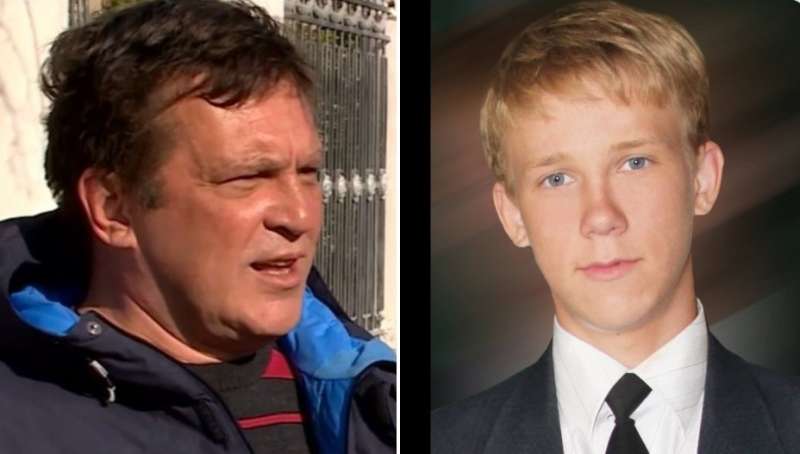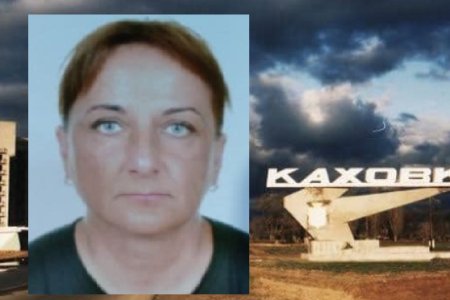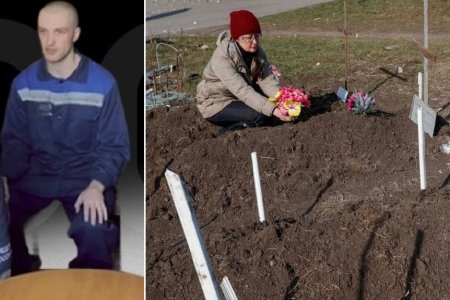
Two of the three fighters of the Russian proxy ‘Donetsk people’s republic’ [‘DPR’] facing life sentences in Ukraine for the torture and killing of 16-year-old Stepan Chubenko in July 2014 have been arrested. Former militant ‘commander’ Vadim Pogodin and one of his subordinates, Mikhail Sukhomlinov, are known to have seized Stepan, a schoolboy from Kramatorsk, because of the Ukrainian ribbons on his rucksack and savagely tortured him, before Pogodin shot him dead in cold blood. If the men’s guilt is not in doubt, there are question marks over the motives for their arrest now, since both men were reportedly detained by the pseudo ‘DPR police’, after Russia actively obstructed earlier attempts to bring Pogodin to justice, and instead gave him a lucrative job in occupied Crimea. It is clear from the reports by the ‘DPR police’ and in Russian state-controlled media that attempts are underway to rewrite the facts about the militants whom Russia used to create its proxy ‘republics’ in occupied parts of the Donetsk and Luhansk oblasts.
The ’DPR police’ report on 3 March falsely claimed that Stepan was 17, and failed to mention that he was still at school. While the description of Vadim Pogodin as “leader of an organized criminal gang” may be accurate, the criminal gang of which he was ‘commander’, namely the so-called Kerch Battalion, was one of the many Russian-controlled, funded and armed militant groups in occupied Donbas. While the charge of murder is evidently appropriate, the second charge (under Article 210 of Russia’s criminal code) of organizing a criminal gang or involvement in it begs the issue of why other militant killers and their gangs are treated as heroes.
It was thanks to the persistence of Stepan’s mother and, very likely, the fact that she is originally from Russia, that this heinous crime was investigated in ‘DPR’ at the time. Many others were not. That does not change the fact that Pogodin and his accomplices, like other Russian and Russian-controlled militants, were confident of their impunity when they tortured, killed and pillaged Ukrainians. Pogodin had further demonstrations of this impunity when Russia refused to extradite him to Ukraine, despite ‘DPR’ having confirmed his guilt.
Now the narrative has changed, with both ‘DPR’ and the Russian state-controlled TASS agency talking about a criminal gang, and saying not a word about the fact that the killers and their so-called Kerch battalion were part of what Russia glorified as ‘the insurgents’.
That is the new official narrative, although there are plenty of those supporting Russia’s aggression who not only mention Pogodin’s militant activities, but even try to justify the torture and killing of a Ukrainian schoolboy. An article by Andrei Grinev on the pro-Kremlin Crimean publication ForPost, for example, cites Igor Girkin [nom de guerre Strelkov] the Russian under international sanctions and facing a life sentence in Holland for the downing of MH17. His words make it clear why the reports have lied about Stepan’s age. “Strelkov in his publications called the murdered young man a ‘pravosek’ [a member or supporter of the Ukrainian nationalist Right Sector party] who, according to information at hand, was involved in spying for the Ukrainian Armed Forces.”
Stepan Chubenko, a schoolboy who loved football most of all, but also wrote poems and took part in amateur drama, did not live to his seventeenth birthday. He was tortured over two days and then murdered because the militants wielding Russian machine guns noticed the ribbons in the colours of Ukraine’s flag on his rucksack and then also found a scarf from a Western Ukrainian football club that the lad supported.
His parents had feared for his safety after Girkin and other heavily armed Russians seized control of Sloviansk and neighbouring Kramatorsk in April 2014. They initially sent him to his maternal grandfather in Russia, but he returned at the end of May. His mother has since recounted how he left there when he heard of the bombs falling. “He said I can’t sit like a rat in the rear when my parents and my country are in danger”. He was initially in Kyiv, but after the militants retreated from Sloviansk and Kramatorsk at the beginning of July, his parents decided it was safe enough for him to return. He was seized as he tried to pass through occupied Donetsk on 23 July 2014 by Pogodin, and two of his subordinates from the ‘Kerch Battalion’ - Yury Moskalev and Mikhail Sukhomlinov
Stepan was beaten in Donetsk, and then taken to a village outside the city where the militants, on Pogodin’s orders, tortured him. Sukhomlinov was ordered to kill Stepan, who was on his knees, with his hands bound behind his back. When Pogodin saw that he was still alive, he grabbed the gun and shot him. These details were ascertained by ‘DPR investigators’, who reported that Pogodin had told his subordinates that the lad was a member of Right Sector and “is also the bearer of other political and ideological views for which he should be shot”.
There seemed, fleetingly, a glimmer of hope that even Moscow drew the line at torturing and murdering a child when Pogodin was detained in occupied Crimea on 20 June 2017 on the basis of an INTERPOL Red Notice issued at Ukraine’s request.
Whatever the motive was for this ostentatious detention, Girkin’s prediction that Pogodin would not be extradited proved quite correct. Pogodin was released, and then, in May 2020, it was learned that he was again working for Moscow, only now in occupied Crimea. He had become the deputy director of the ‘Technologies and Restoration’ company and was getting money from the occupation authorities in Crimea and the Moscow government for repairs to streets, stairs, etc. in Crimea. Judging by the reports in Russian-controlled Crimea media, his work as a contractor has been heavily criticized for poor quality, etc., although, at least for some time, this did not result in him losing official support.
That would now appear to have changed, with Russia, via its proxy ‘DPR’, suddenly ‘remembering’ one of the most unspeakable crimes committed by its fighters, one that they showed no concern about for almost nine years. For the moment, it remains unclear whether Pogodin (and Sukhomlinov whose arrest was reported on 7 April 2023) simply annoyed somebody in power, or whether Russia is trying in this way to rewrite the facts, and recast some of the killers it armed and controlled in 2014 as ‘organized criminal gangs’.



